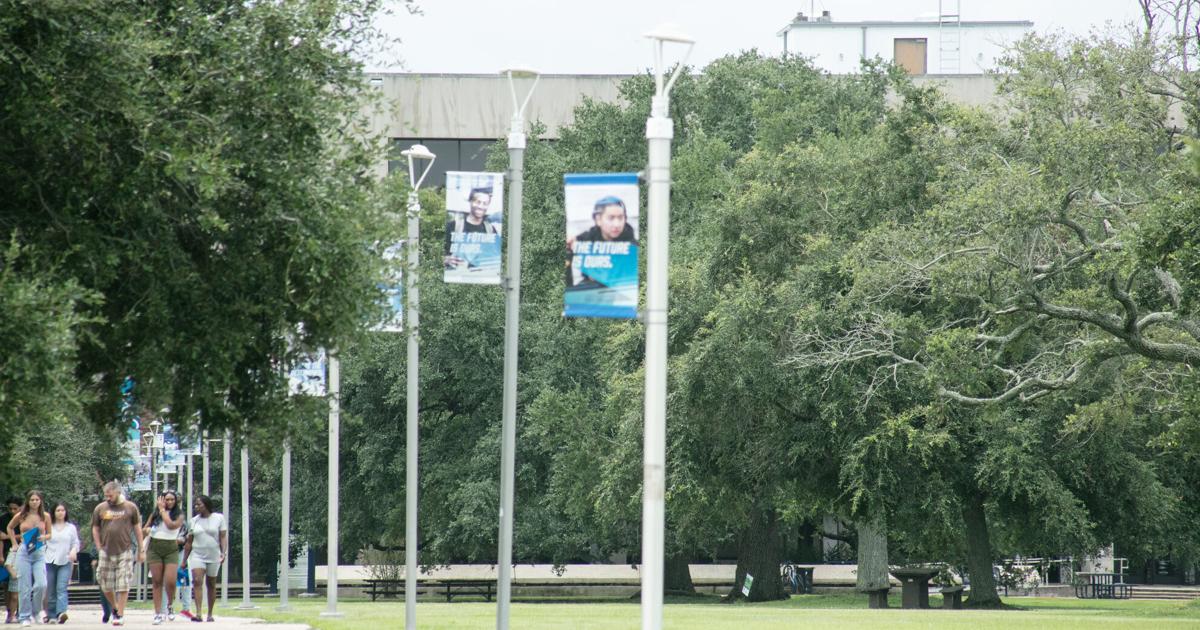Big cuts could be coming to coming to Louisiana higher ed | Education

Bracing for a $250 million budget shortfall with the sunset of a state sales tax next year, Louisiana higher education system leaders told the Board of Regents that funding cuts could have “devastating” impacts.
That could mean slashed programs, layoffs and students across the state receiving less financial aid, system leaders said at a state Board of Regents budget hearing on Tuesday.
“There’s no place to cut that won’t hurt,” said Dennis Shields, president and CEO of the Southern University system.
If the state sales tax is not renewed, Louisiana will face a budget shortfall around $600 million, said Taylor Barras, commissioner of administration of Gov. Jeff Landry’s administration.
Barras said the legislature will likely go into a tax policy special session later this year, where income tax and other policies could be discussed.
Earlier this year, the Board of Regents asked Louisiana’s higher education leaders to detail how those cuts could impact their cash flow, recruitment and retention of students and tuition costs.
The cuts would result in a $50.4 million, or 20.3%, reduction in scholarships, including TOPS, Go Grants, RCP, the Patriot Scholarship and GO Youth ChalleNGe, said Sujuan Boutte, executive director of the office of Louisiana Office of Student Financial Assistance. That means students would receive lower awards and stipend amounts.
Elizabeth Bentley-Smith, associate commissioner for finance and administration for the Board of Regents, said colleges and universities across the board voiced concerns about mental health of students, faculty and staff amid cuts might mean program reductions, layoffs and increased workload for staff after cuts.
The Board of Regents oversees four higher education systems that run nearly 30 institutions across the state: University of Louisiana, Louisiana State University, Southern University and Louisiana Community and Technical Colleges System.
Layoffs, program cuts at Southern
Underfunding has long challenged the Southern University system, Shields said. About 30% of the system’s operating budget is funded by the state and 65% comes from tuition, housing and student-driven costs, he said.
Last year, the U. S. Department of Education said that historically Black colleges and universities across the country have been underfunded by $13 billion over the last 30 years, and that Southern University lost out on $1.2 billion over that period.
“The budget cuts that took place a decade or so ago decimated Southern University and we still have not recovered,” Shields said. He added that the system is currently understaffed and has trouble retaining top recruits who take higher-paying jobs elsewhere.
The cuts would challenge Southern’s accreditation, he said, and force the system to close programs and lay off staff and faculty which could lead to the loss of federal grants.
Fewer staff would mean fewer academic advisers and larger classes for students, and campuses would be unable to add more programs, such as chemical engineering, which Shields said has long been sought after by Louisiana industry.
Shields said enrollment across the system is up a bit, primarily in Baton Rouge, but that SUNO and Shreveport are still struggling to retain students.
For the next two years, Shields said, the system doesn’t plan on diving into reserves but has started being conservative in hiring decisions.
Cuts at University of Louisiana system
Enrollment numbers from this fall are promising across the board at University of Louisiana system, but all schools are projecting budget deficits even before any cuts from the state, said Rick Gallot, president and CEO of the University of Louisiana system.
Gallot told the Board of Regents that the additional budget cuts would be “devastating to all nine of our institutions.” Some schools projected programmatic cuts, hiring freezes and dozens of layoffs and unfilled positions.
“These are cuts that go well beyond the fat, that get down to the bone quite frankly,” Gallot said.
Still, this fall’s enrollment numbers offer signs of hope. At University of New Orleans, there was a 16% increase in first-time freshmen and 38% increase in transfer students from last year, statistics that show the school is “turning the corner,” he said, though total enrollment at UNO was down 1.7% to 6,488 students.
Louisiana Community & Technical College System
Monty Sullivan, president of the LCTCS system said that the budget cuts would result in about 417 layoffs, 20 campus closures and one institutional closure across the 12 colleges. Sullivan declined to name which institution would be at risk of closure for fear of it becoming a “self-fulfilling prophecy.”
Besides the proposed cuts, Sullivan said financial viability of the institutions are strong, with 11 having half their general operating budget banked in reserves. Current enrollment is only about three percentage points below pre-pandemic levels in 2019.
Louisiana State University System
LSU president William Tate said that in 2022 LSU’s budget was made up of 20% state funds and 80% self-generated funds, such as tuition. This fall, every LSU campus broke enrollment records, he said.
The budget cuts would have a $30 million impact at LSU’s main campus, said Kimberly Lewis, executive vice president for finance and administration for LSU. Though she did not share specific impacts, she said the university has started to look at ways to reduce expenses and increase revenue, like increasing patents.
Tate said LSU hasn’t increased tuition fees since 2019 and that further disinvestment would hurt research efforts.
The Board of Regents will vote on the 2024-2025 fiscal year operating budget at its regular meeting on Wednesday.




